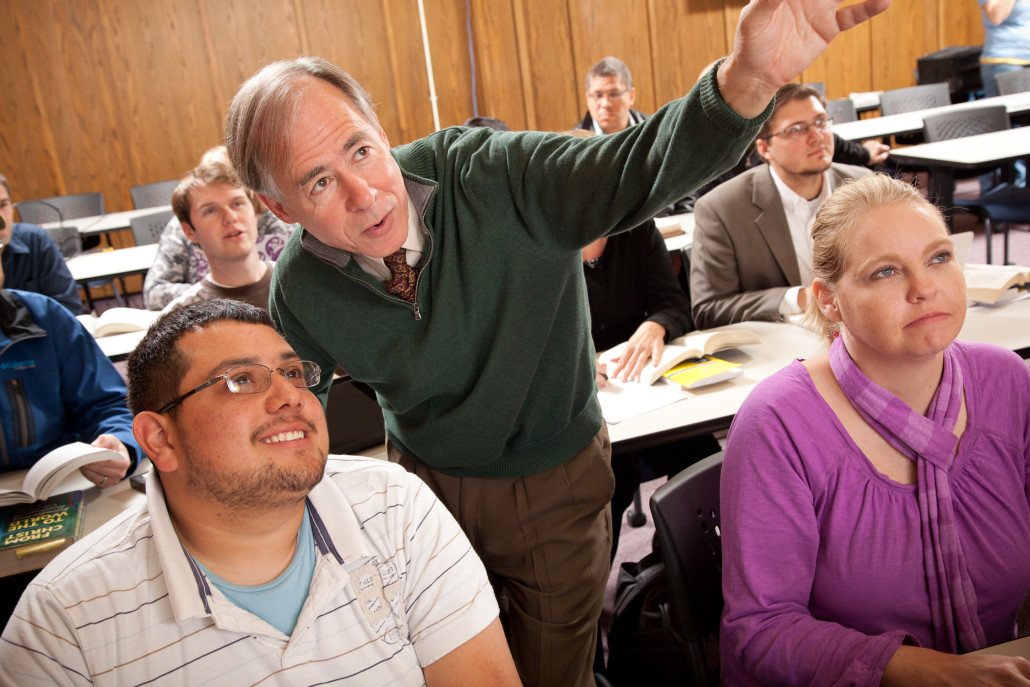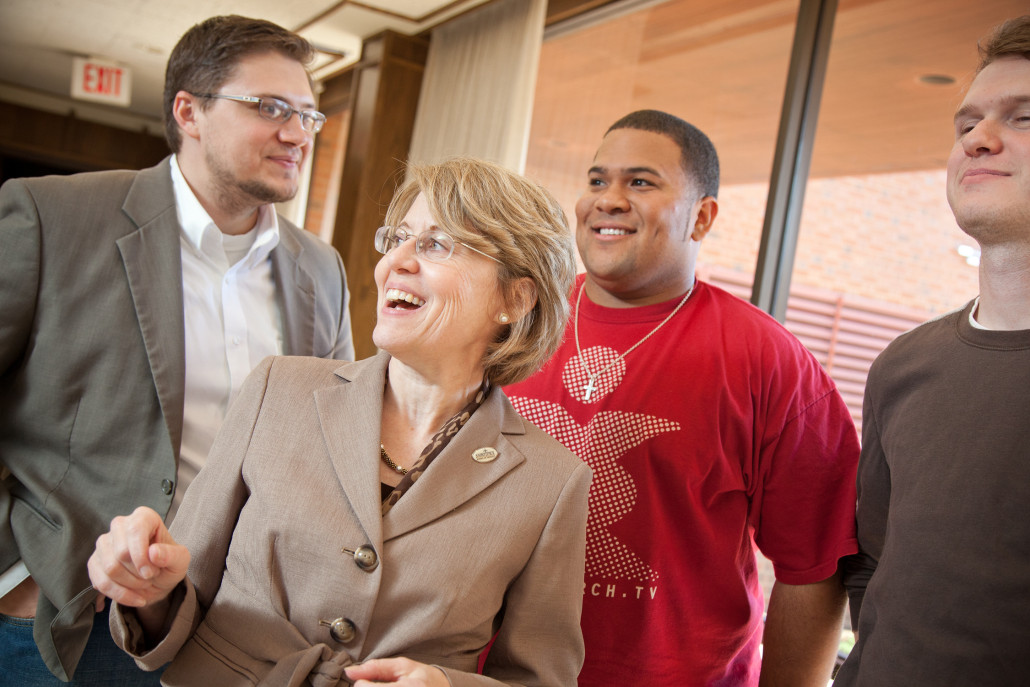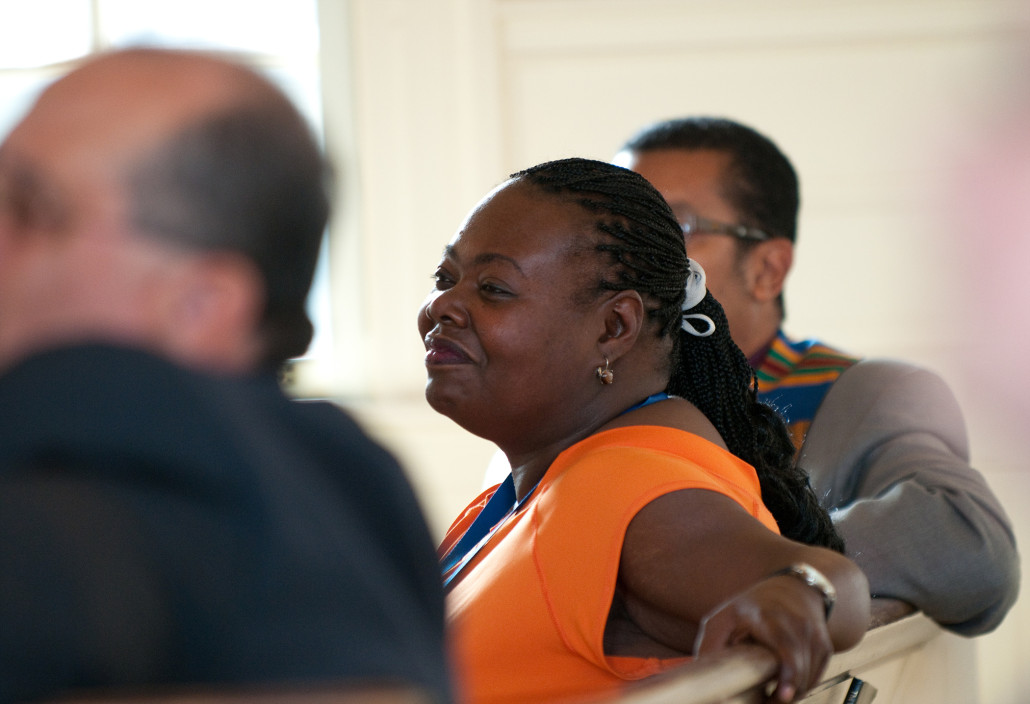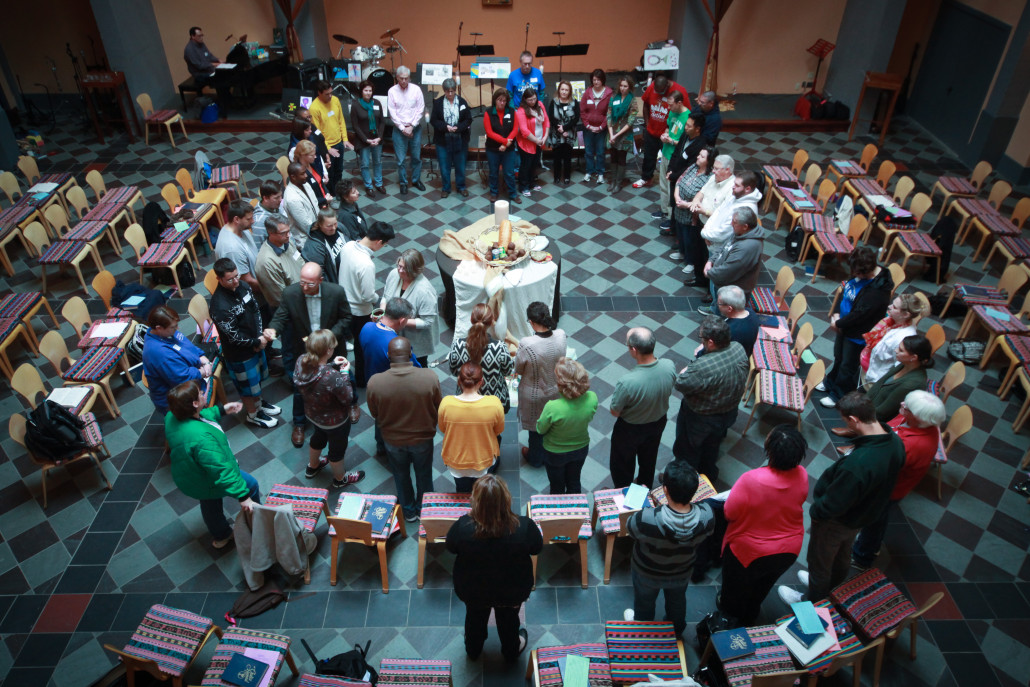Preparing for Ministry Through Contextual Education
At Saint Paul, we focus a portion of our theology curriculum on contextual education and hands-on learning. Students that graduate from our Master of Divinity (MDiv) and Master of Arts in Christian Ministry (MACM) programs gain valuable experience in and out of the classroom, through ministry internships, congregational site visits, small focus groups, case studies, and a year-long mentorship. Our goal is to thoroughly prepare you for the realities of ministry in your own community. Be ready to roll up your sleeves and do the good work God called you for:

PLUM Groups
Preparing for Local Ministries (PLUM) is a two-semester sequence of courses (CTX 301-302) that functions as the introduction to our Contextual Education curriculum. PLUM provides MDiv students the unique opportunity to learn together in the same group and with the same experienced practitioner of ministry for two consecutive semesters. For help meeting these requirements and finding a Ministry Setting, please contact the Contextual Education Office.
PLUM groups:
- Are required for MDiv students
- Are kept small
- Reflect on ministry and seminary life
- Are led by an experienced practitioner of ministry
- Include two semesters with the same group and leader
- Include site visits to congregations and social ministries
- Involve in-depth case studies
- Require a concurrent Ministry Setting (at least four hours per week, paid or volunteer, beginning October 1)
Judd H. Jones Scholarship & Internship Placement at The Hub
The Judd H. Jones Internship is for any Master of Arts in Christian Ministry (MACM) or Master of Divinity (MDiv) student living in the greater Kansas City area.

Ministry Collaboration Groups
Students in Ministry Collaboration Groups reflect on experience in life and ministry. These groups:
- Are kept small
- Are led by a regular or adjunct faculty member
- May include case studies, learning goals, written assignments, short readings, self-reflection, and self-evaluation
- Require a concurrent Ministry Setting (at least four hours per week, paid or volunteer, in a place at the start of the semester)
Ministry Collaboration Groups allow students to engage in the following theological topics:
- Identity and role in ministry
- Practices of ministry
- The Church and its mission
- Constructive participation in small groups
Three Ministry Collaboration Groups are required for MDiv students. For help meeting these requirements and finding a Ministry Setting, please contact the Contextual Education Office.
MACM Collaboration Groups
Students in the Master of Arts Collaboration Groups reflect on their unique experiences in life and ministry as they journey through the MACM track. This group provides students the unique opportunity to learn together with all MACM colleagues for four consecutive semesters. These groups:
• Are kept small
• Are led by a regular faculty member
• May include case studies, learning goals, written assignments, short readings, self-reflection, and self-evaluation
• May include interviews with seminary-trained leaders in diverse specialized ministry settings
• Require a concurrent Ministry Setting (at least four hours per week, paid or volunteer, in a place at the start of the semester)
MACM Collaboration Groups allow students to engage in the following theological topics:
• Identity and role in diverse ministry settings
• Practices of ministry
• The Church and its mission
• Constructive participation in small groups
Four MACM Collaboration Groups are required for MACM students. For help meeting these requirements and finding a Ministry Setting, please contact Dr. Casey Sigmon, Director of Contextual Education.

Ministry Settings
All students enrolled in a PLUM Group or Ministry Collaboration Group must also serve in an approved Ministry Setting for a minimum of four hours per week. The Ministry Setting may be a paid or volunteer position.
Information on open part-time positions can be found in the Contextual Education Office. Ministry Setting positions typically include pastoral, youth, children, and Christian positions. The Contextual Education office sends notices out via email when new positions arrive. For information on current opportunities, email David Firman at .
Additional information regarding Ministry Settings:
- Employment or appointment as a part-time pastor of a congregation is a qualified Ministry Setting.
- Information about volunteer agencies and non-profit programs willing to work with Saint Paul students is available. Please contact David Firman or Dr. Casey Sigmon with questions. Volunteer positions can provide excellent learning experiences.
- Students may also propose innovative opportunities for approval as Ministry Settings. Approval of Ministry Settings is based on meeting the educational needs of Contextual Education courses and the standards of Saint Paul School of Theology. Decisions are made by the Contextual Education Office.

Spiritual Formation Retreats
Spiritual Formation Retreats are day-long gatherings of students, faculty, and staff for prayer, learning, and fellowship.
By gathering in community, we seek to be formed for ministry: to grow in personal and social holiness and to deepen our sense of being the body of Christ in this place.
